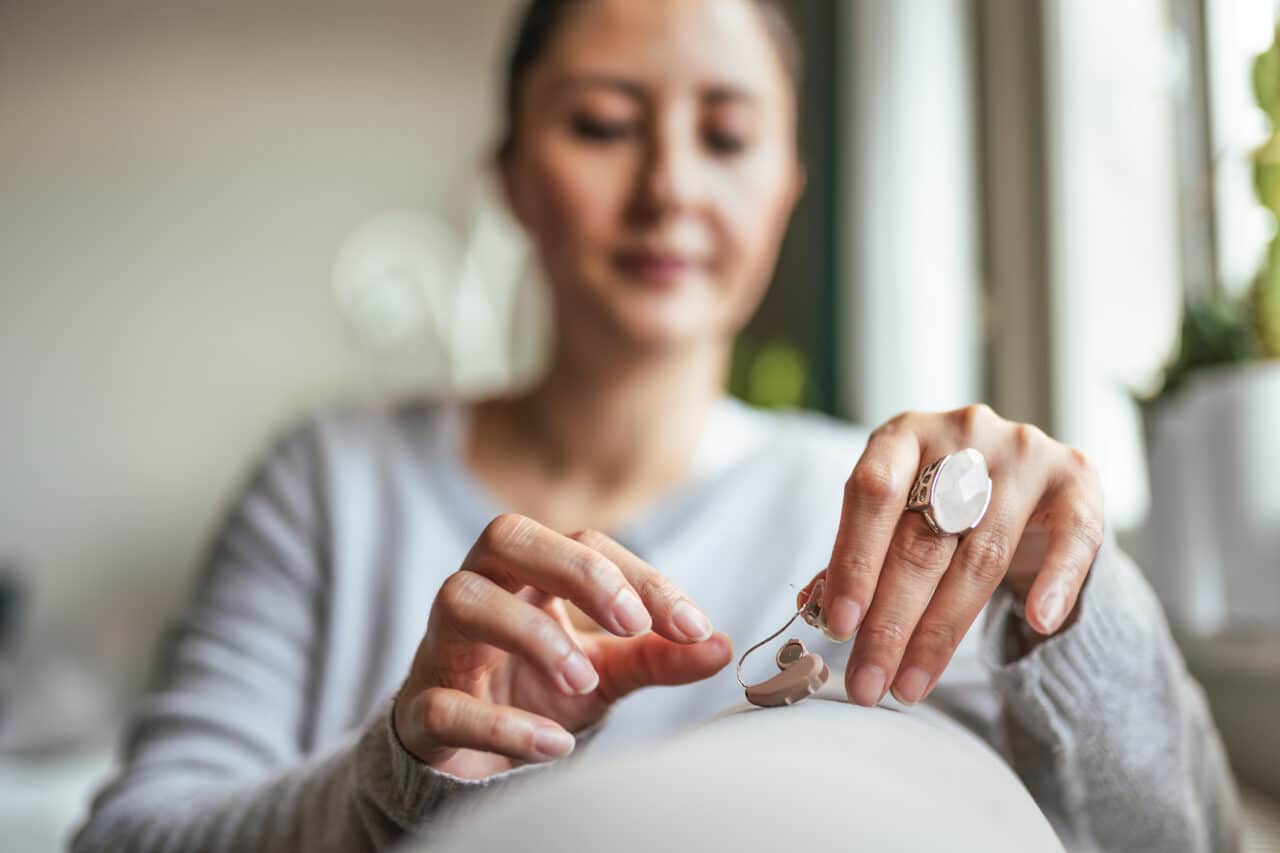Though some modern hearing aids have built-in rechargeable batteries, many still take disposable button batteries, also known as zinc-air batteries. Batteries contain heavy metals such as mercury, silver and lithium. If ingested, they can cause serious burns and damage internal organs. This is why it’s important to know about battery safety.
How to Store Batteries

In order to keep your batteries safely away from children and pets, follow this list of do’s and don’ts:
- Do purchase in a container with a lid that snaps firmly closed.
- Do keep this container on a high shelf or in a closet with a door you can keep shut.
- Do store your batteries at room temperature.
- Don’t store batteries near metal objects like coins and keys.
- Don’t put batteries near medications, as the shape and size are often similar.
How to Dispose of Hearing Aid Batteries
When your batteries die, store them in a child- and pet-proof container until you can take them to the Mobile County Recycling Center. You should never leave them on a counter or throw them in the trash can. Over time, batteries leak hazardous chemicals, which contaminate the environment. Recycling centers extract the dangerous chemicals and dispose of them safely.
If You Get an Acid Burn
Hearing aid batteries can sometimes leak, and if this leakage comes into contact with skin, it can cause an acid burn. If this happens:
- Use a wet cloth to wipe off where the leakage has made contact with your skin.
- Remove any clothing and jewelry that has come into contact with the battery acid.
- Run cool water on the affected area for at least 15 minutes.
- Wrap the affected area with gauze or a cotton towel.
- Call your doctor if skin discoloration continues.
If a Battery Is Ingested
If someone ingests a battery, this is a medical emergency. Do not attempt first aid at home; instead, immediately take them to an emergency room.
If the person who ingested the battery is more than one year old, you can give them two teaspoons of honey every 10 minutes until you reach the hospital. This can help slow the development of internal battery burn injury, but it will not stop it from happening. For more information about hearing aid service and repairs or to schedule an appointment with an expert, call Premier Medical Group today.